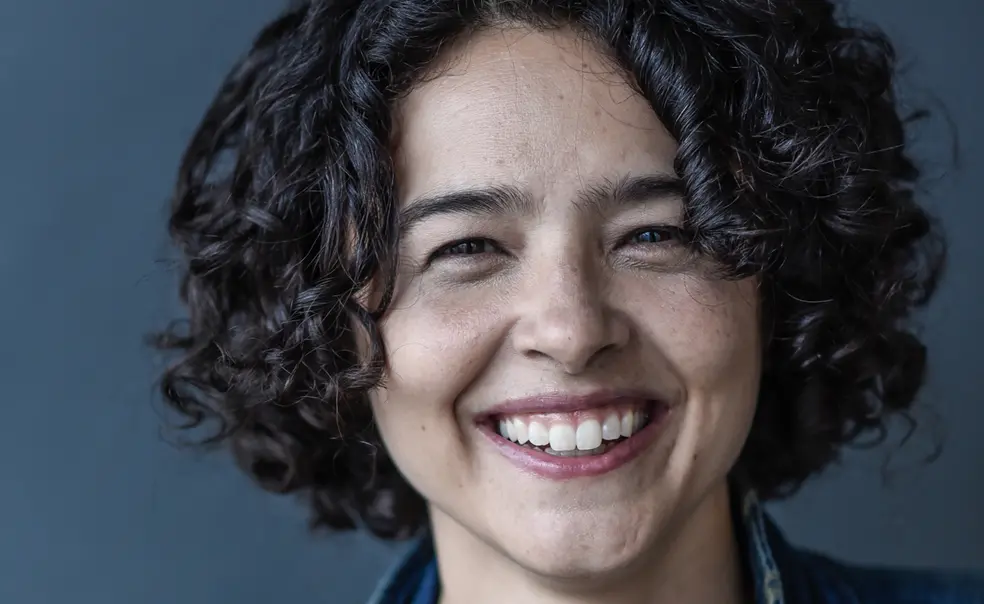AP Reporter Bianca Vazquez Toness ’99 Named Pulitzer Finalist
Her five stories reported on the pandemic’s corrosive effect on public schools
During the height of COVID-19, journalist Bianca Vazquez Toness ’99 spent nine months following a high school class of mostly immigrant teens in a Boston inner city school. Financial problems prompted by the pandemic caused several to drop out of school to work. Others students struggled with their mental health.
Even after public schools across the United States reopened for in-person learning, many students never returned to class. Vazquez Toness, who’s an education reporter for the Associated Press, wanted to tell on a national scale the critical story of how and why these students had ended up drifting away.
Over the course of a year, she interviewed students from California to Georgia who were struggling to stay in school. She worked alongside AP editors and photographers and a data journalist who traveled to all 50 states hand-gathering figures on chronic absenteeism. “It was an important marriage of data and on-the-ground reporting,” Vazquez Toness says.
The five articles on the corrosive effect of the pandemic on public education that emerged from the reporting drew the attention this year of Pulitzer Prize judges. Vazquez Toness and her colleagues were finalists for a 2024 Pulitzer for national reporting. It’s American journalism’s most prestigious honor.
One piece told the story of a Los Angeles teen who was afraid to leave the studio apartment he shared with his mother, sister, and an antagonistic new roommate who the family feared would lock them out. “That story was really important, because it showed people the link between housing, how that got worse during the pandemic, and how being homeless during COVID was a recipe for disaster for a lot of kids,” she says.
For Vazquez Toness, the Pulitzer nomination was the culmination of years of tireless work in journalism. Writing has been a passion of hers since Princeton, when her junior year she wrote a piece for the Nassau Weekly about a menstrual cup that company founders were also trying to develop into an HIV preventative using a special gel.
As an anthropology and women’s studies major at Princeton, Vazquez Toness learned how to think critically about systems, she says, while photography courses showed her the value of revision and workshopping. “That really stayed with me,” she says.
After graduating, she moved to the Mexican countryside for an anthropology fellowship. There, the excitement around the country’s monumental 2000 presidential election drew her in: Mexico’s dominant political party was defeated for the first time in 71 years.
She headed to Mexico City, where foreign news bureaus had set up shop, and she helped arrange interviews and translate for reporters. “It was incredibly exciting to cover the election and learn from impressive journalists around me,” she says.
She reported, produced, or wrote stories for Newsweek, CNN, Time, and a Mexico City English language daily newspaper, and wrote about crackdowns on street vendors and the increasing militarization of some Mexico City neighborhoods. Back in the U.S., she started covering education for a small newspaper in Washington state, where a large Mexican immigrant population lived.
She’s since worked at big names in media like NPR, Bloomberg, and The Boston Globe before landing at the AP to focus on K-12 education. “I’m drawn to stories about the welfare of kids,” she says. Vazquez Toness herself had a tumultuous childhood growing up in El Paso, Texas, then the Florida panhandle, she adds, and school was always a safe place. “It’s heartbreaking to me that some kids don’t have that experience.”
Continuing to report on students’ lived experiences in the U.S. is crucial, she continues, because it builds connection and understanding. “Readers can see themselves in these stories, and then they begin to understand what’s going on in their communities, and why some of the current solutions we’re seeing just aren’t working.”










No responses yet